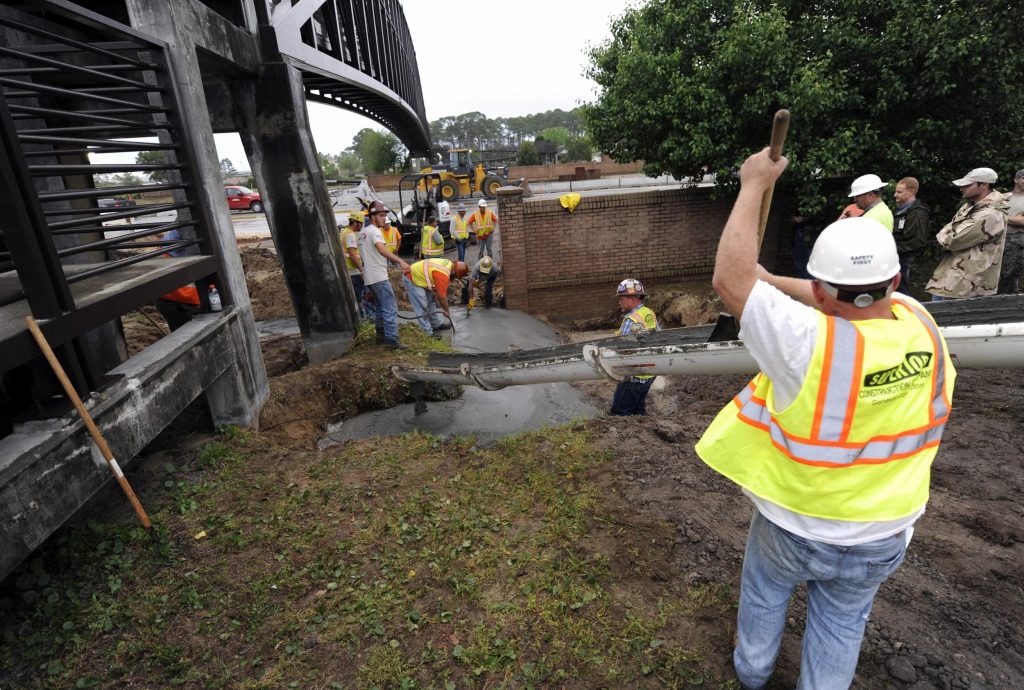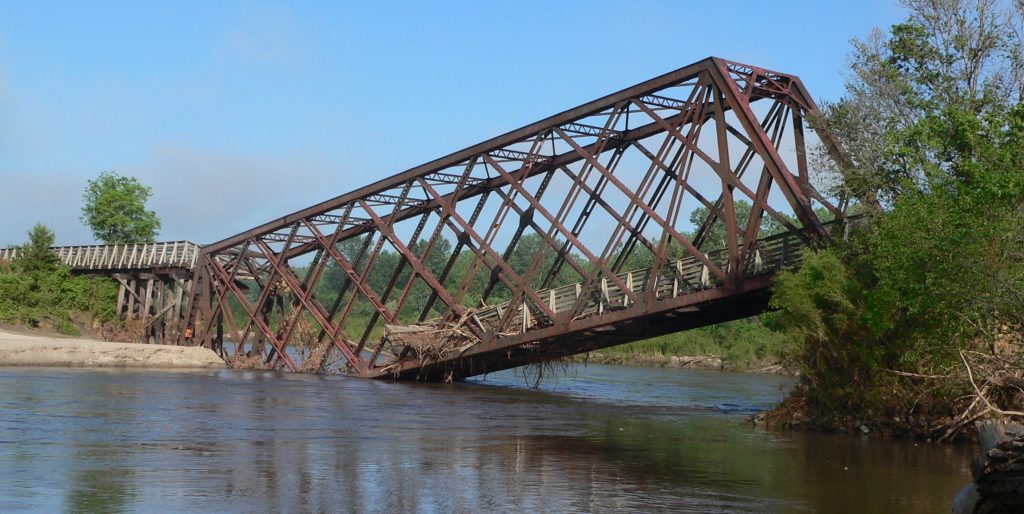InTrans / May 22, 2017
Transportation & me: A forensics expert
Go! Magazine
p osted on May 22, 2017
osted on May 22, 2017
You might be surprised, but transportation can commit crimes too.
This month, as we look at some unique transportation-related careers, a forensics expert does come to mind. Forensics or “scientific tests or techniques used in connection with the detection of crime” isn’t just for the movies.
But transportation forensics is a bit different than the forensics you see on CSI: Crime Scene Investigation, instead it’s about figuring out the cause of “death” (or an accident) where transportation is the culprit. For example, transportation forensics may be used to determine why a bridge collapsed or a train crashed.
Forensics experts specializing in transportation are crime experts sure, but they need a unique set of skills and a background in engineering to solve the case.
Getting started
So, what do you need to be a successful forensics expert?
Like many other transportation-related careers, getting a bachelor’s degree in civil or structural engineering is a great place to start. As a high school student getting ready for an undergraduate engineering program, taking high-level science, math, or physics classes is something you can do right now to jumpstart your future career.
When considering a job in the transportation industry, it’s also important to note whether or not you have certain qualities that make for a “good” engineer. After all, you can be whatever you set out to be, but finding out if it really is a good fit is important too.
Engineers typically need to have good decision-making, leadership, math and problem solving, writing, and organizational skills. Plus being comfortable with public speaking is always a plus, since engineers often find themselves at large conferences presenting their research or on the local news discussing the impact of transportation in their community.
Does that sound like you? If so, it might be a good time to look into schools that offer undergraduate degree in engineering. The top schools in the country offering undergraduate engineering programs include the Massachusetts Institution of Technology (MIT), Stanford University, and University of California–Berkeley. That said, there are also many state schools that offer a more affordable undergraduate education, like the one at Iowa State University in Ames, Iowa.
On the job
As a type of engineer, you could expect to make an average of about $83,000 per year. The median annual salary for civil engineers was $83,540 in May 2016 or about $41.16 per hour. This number may vary as a forensics expert, considering that transportation forensics and planning is one of the many civil engineering-related careers out there today.
As infrastructure is worn-down over time, engineers of all types are needed to manage and rebuild bridges, repair roads, and upgrade existing infrastructure like levees and dams. That said, employment of civil and structural engineers is projected to grow about eight percent between 2014 and 2024. The world will never stop needing engineers to plan, repair, and build new infrastructure.

Choose your path
You may choose a field of expertise like highway, bridge, or railway engineering. As different sects of transportation-related engineering, these jobs could be drastically different, but the basics of any transportation forensics job is relatively the same.
Generally, you’d need to apply scientific principles to planning, designing, operating, and managing facilities that specialize in the safe transportation of people or products. You’d apply the laws of physics to evaluate factors like the rate of speed or human influence on transportation and determine the cause of an accident, as well as prevent accidents from happening in the future.

You might assess safety features like highway guardrails, railroad crossing guards, or construction zone barricades to identify the causes of accidents (much like how forensic crime experts analyze the scene of a crime).
Your job could be to recognize how construction of a roadway or other infrastructure led to accidents—one of the main objectives of many transportation engineers. These types of analyses are essential when creating and maintaining safer transportation infrastructure.
Pave the way for… your future!
So, what do you think? Do you have an interest in math and science and in putting your problem-solving skills to the test?
If so, what is covered here may only be the beginning. Browse the other information provided in the “Related links” section.
Remember, our society needs engineers, because they save our lives everyday by keeping us moving in a safe direction.
References
https://www.usnews.com/best-colleges/rankings/engineering
https://www.bls.gov/ooh/architecture-and-engineering/civil-engineers.htm
https://www.bls.gov/ooh/architecture-and-engineering/civil-engineers.htm#tab-4
http://focusforensics.com/forensic_services/transportation_engineering/
Related links
Browse real-world example of transportation forensics experts: http://www.robsonforensic.com/experts
A look at transportation forensics: https://www.fhwa.dot.gov/publications/publicroads/05may/03.cfm
Highway engineer salary: www.glassdoor.com/Salaries/highway-engineer-salary-SRCH_KO0,16.htm
Browse bridge engineering jobs: https://www.glassdoor.com/Job/bridge-engineer-jobs-SRCH_KO0,15.htm
Civil engineer, bridge engineer salary: http://www.payscale.com/research/US/Job=Civil_Engineer%2C_Bridge/Salary
A forensics company: http://focusforensics.com/forensic_services/transportation_engineering/
By Hannah Postlethwait, Go! Staff Writer